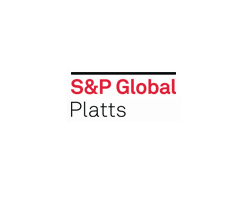Indonesian February HBA Reference Prices Mixed Across Thermal Coal Grades

February 19, 2024 - Indonesia saw mixed movement in its February thermal coal reference price, called Harga Batubara Acuan, across grades, according to an official document seen by S&P Global Commodity Insights Feb. 19 showed.
While the price for 6,322 kcal/kg GAR high-grade thermal coal -- on which the HBA pricing has traditionally been based -- and 4,100 kcal/kg GAR thermal coal dropped from previous month, the price for 5,300 kcal/kg GAR and 3,400 kcal/kg GAR witnessed an uptick as compared with the previous month.
The rise and fall combination of the reference prices also reflect the volatility of the current market, an Indonesia-based trader said, adding that the market is also finding it difficult to understand the future demand trend as the top consuming nations are sufficiently stocked to cater to current domestic demand.
The price for 6,322 kcal/kg GAR high-grade thermal coal fell 0.71% on the month to $124.95/mt, according to the document.
Indonesia set the HBA for the newly introduced 5,300 kcal/kg GAR grade at $87.65/mt in February, marginally up from $87.36/mt in January. The HBA for 4,100 kcal/kg GAR dropped 1.20% on the month to $57.86/mt in February. The 3,400 kcal/kg GAR reference price, however, jumped 1.21% on the month to $37.54/mt in February.
"For the last couple of months while the overall demand was quite subdued, the 3,400 kcal/kg GAR has seen some activities in the market, and the participants anticipate now that Chinese players are back from holidays demand for the grade is likely to rise for restocking purpose," an Indonesia-based producer said, adding it could be the reason for the price hike.
Chinese participants were away from desks for the weeklong celebration of the country's Lunar New Year holidays from Feb. 10-17.
Platts, part of S&P Global Commodity Insights, assessed average FOB prices of 4,200 kcal/kg GAR and 5,000 kcal/kg GAR in January at $57.43/mt and $78.26/mt, respectively, with the former falling from $57.55/mt and the latter slightly rising from $78.16/mt in December. The average FOB prices of 4,200 kcal/kg GAR and 5,000 kcal/kg GAR in the first half of February were $57.13/mt and $78.33/mt, respectively.
The grades were last assessed at $57.05/mt FOB and $77.95/mt FOB, respectively, Feb. 16, S&P Global data showed.
HBA serves as the foundation for setting Indonesian coal product prices and determining the royalty payments for the supplies exported overseas. The Indonesian government first altered the pricing formula for establishing these benchmark prices in February 2023.
The ministry earlier used to publish the price of 6,322 kcal/kg GAR grade coal based on HBA every month. But that changed from March 2023, when the government started publishing for multiple grades.
Since March 2023, the HBA pricing formula has been determined by considering the actual selling prices of specific coal specifications from the previous two months. This calculation assigns a 70% weight to the average price of the preceding month's cargo and a 30% weight to the average price from the month before.
The government now announces HBA prices for 5,300 kcal/kg GAR, 4,100 kcal/kg GAR and 3,400 kcal/kg GAR grades along with the traditional 6,322 kcal/kg GAR grade.
Meanwhile, prices of thermal coal in the Asian spot market have been rangebound amid lower demand from major buyers such as India and China amid high domestic inventories.
In the current month, some small- and mid-sized miners in Sumatra and South Kalimantan regions have been facing logistics and loading issues due to consistent rainfall, thus, increasing wait period for several vessels to load, causing a supply tightness in the spot market. The current supply tightness has somewhat supported the spot prices against any significant fall in the overall quiet market.
Separately, the Indonesian government said it is not looking to change the methodology for its benchmark thermal coal reference price anytime soon, despite questions raised by some miners on accuracy and criticism over higher royalty payouts.

